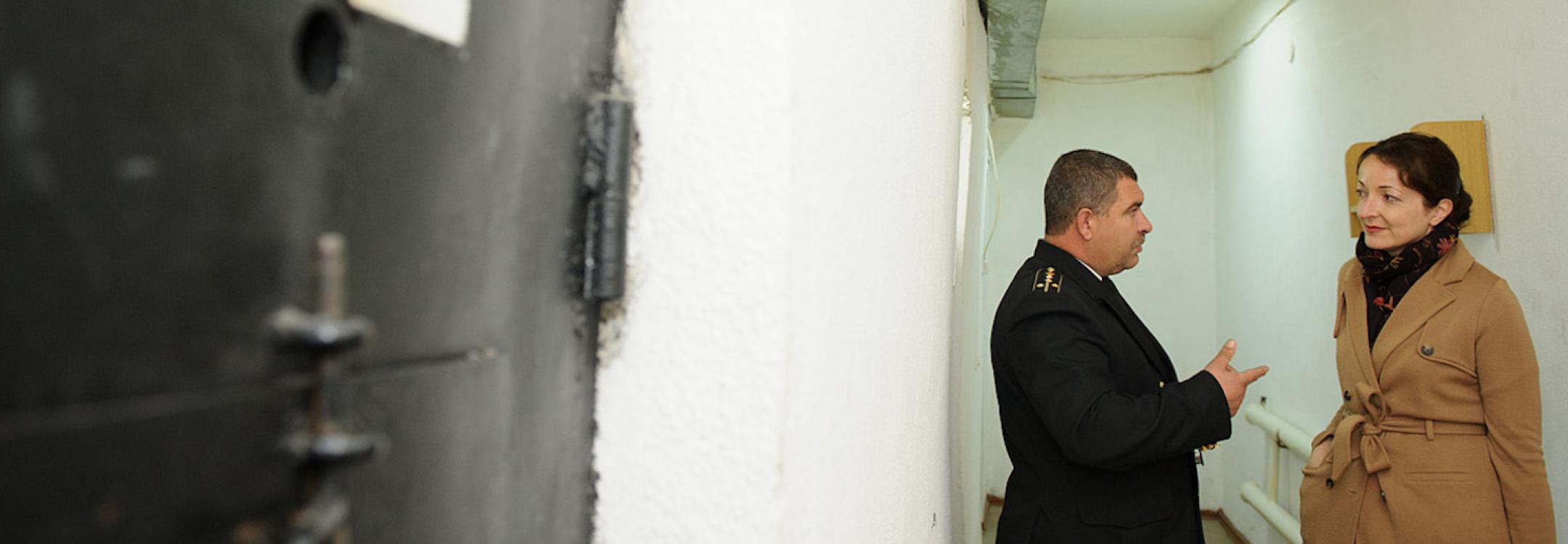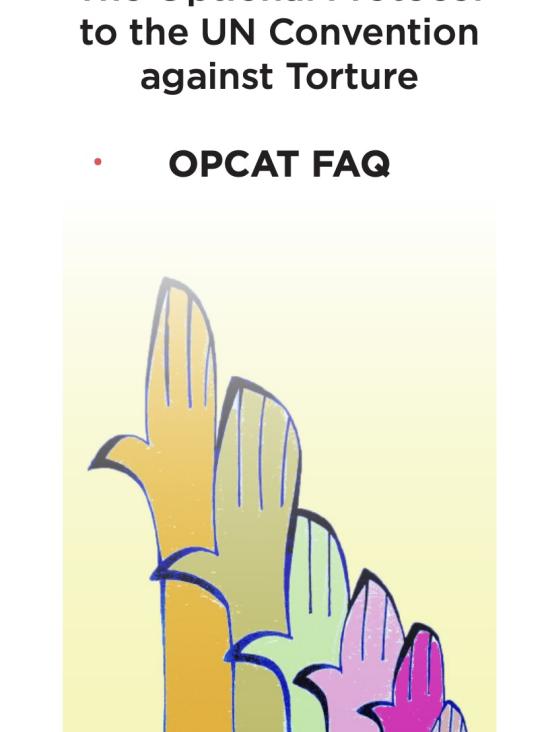
Torture happens in secret, in closed places, out of sight. Opening places where people are deprived of liberty to independent oversight is one of the most effective strategies to prevent torture and ill-treatment.
Replacing secrecy with transparency was the vision of APT founder, Jean-Jacques Gautier. He advocated that allowing independent teams to monitor all places of deprivation of liberty, interview detainees and collect information would help reduce the risk of torture.
Regular follow-up visits to monitor the implementation of recommendations, supported by an ongoing and constructive dialogue with the authorities, were also key to his vision of driving change.
This vision became reality in 2002 with the adoption of the Optional Protocol to the Convention against Torture (OPCAT).
The OPCAT establishes independent oversight of places where people are deprived of liberty by an independent national body, known as a National Preventive Mechanism (NPM).
HOW WE WORK
We encourage States to ratify the OPCAT and provide them with advice on the designation and establishment of NPMs.
We provide training and support to new NPMs as they develop the systems they need to conduct effective detention monitoring.
We assist NPMs across the globe to support their work and link them with others to build a global community of practitioners for torture prevention.
ABOUT THE OPCAT
The OPCAT seeks to prevent – rather than respond to – torture and ill-treatment. It establishes a system of visits by an international body - the UN Subcommittee on Prevention of Torture (SPT) - and a national body, the NPM.
When a State ratifies the OPCAT, it agrees to receive visits by the SPT without prior invitation; to designate and establish an NPM; and to allow both to conduct unannounced visits to all types of places where people are deprived of liberty
These visits are not based on documenting complaints. Rather, the process seeks to engage national authorities in an ongoing and constructive dialogue in order to foster change in laws, policies and practices, and in each place of detention, in line with international human rights standards.
CHARACTERISTICS OF EFFECTIVE OVERSIGHT BODIES
NPMs and other oversight bodies should have the independence, capacity and resources necessary to execute their mandate. It is crucial that certain minimum requirements are respected when they monitor places of detention, including:
- The power to conduct unannounced visits at any time and at any place where persons are deprived of their liberty. Monitors should also have access to the entire premises.
- The power for monitors to interview anyone of their choosing, including staff or detainees. These interviews should take place in private and in a suitable place.
- The power for monitors to access all types of records, including prison registers and disciplinary records.
- The power to follow-up on monitoring visits, including through public reports and recommendations made to authorities.
ABOUT NPMs
NPMs have a mandate to conduct regular monitoring visits to all types of places where persons are deprived of liberty. This includes, among others, prisons, police stations, psychiatric institutions, institutional care facilities, ‘stops and searches’ and immigration holding centres.
These visits allow NPMs to identify early warning signs and make recommendations to prevent torture and other forms of ill-treatment.
Drawing on the information they collect, NPMs propose concrete preventive measures that respond to the country's context. States have an obligation to enter into dialogue with the NPM on the implementation of the recommendations proposed.
The mandate and powers of an NPM are set out in the OPCAT. However, this mandate should be formalised in legislative text, including:
- Visiting all places where people are deprived of liberty, announced and unannounced, with the aim of strengthening protection of persons deprived of liberty
- Making recommendations to the authorities to improve the treatment and conditions of persons deprived of liberty
- Submitting proposals and observations on existing or draft legislation that relate to deprivation of liberty and torture prevention.
